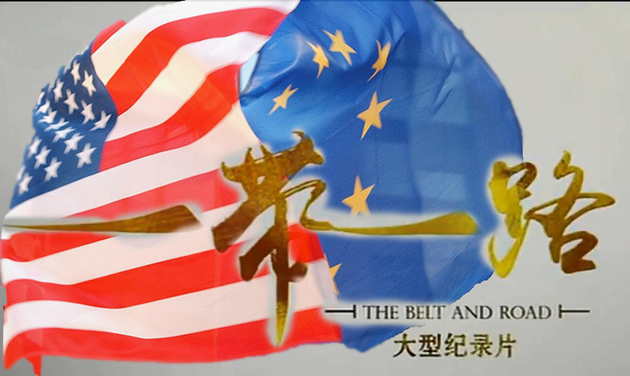The EU and the U.S. teamed up to pledge for the umpteenth time that they were not going to be outdone by Xi Jinping's Belt and Road Initiative — the giant Chinese scheme creating a modern Silk Road of infrastructure investments. On Tuesday, the Europeans and Americans sought to shine a spotlight on their $600 billion scheme to hit back against Beijing’s efforts to exert soft-power influence through a massive spending spree in ports, roads, rail and energy networks across emerging economies, Politico writes.
Sitting in a conference room inside the luxurious Kempinski hotel, overlooking the Indian Ocean, U.S. President Joe Biden and European Commission President Ursula von der Leyen unveiled the Partnership for Global Infrastructure and Investment, in the presence of Joko Widodo, president of Indonesia, host of this year's G20.
Von der Leyen promised: "We offer values-driven, high-standard, and transparent infrastructure partnerships for low- and middle-income countries." The genesis of the PGII came at the G7 in Britain in 2021 and it was formally launched at the G7 back in June. You may well have also heard about a previous U.S. incarnation of the plan as "Build Back Better World," while the EU has been casting its efforts as the Global Gateway initiative.
The West is good at launching and naming plans to rival Belt and Road, the big question is whether it can ever seriously challenge China on the ground.
In a worrying sign for Biden and von der Leyen, few developing countries showed up to what Biden and von der Leyen hoped to be a strong message to confront Xi's Belt and Road. China's big rival India and the host Indonesia were the only developing countries present.
The West has been struggling with the brand-building exercise for years. While China's plan quickly turned to steel and concrete, the West's answer to the Chinese Belt and Road Initiative remains vague.
Above all, it is a way to "pool the know-how, the expertise, and most importantly, the money" from several countries, said Erin Murphy, from the Washington-based Center for Strategic and International Studies.
Antoine Bondaz, a China scholar at the Paris-based Foundation for Strategic Research, criticized the West's failure to come up with specific projects. "If we want to be credible, we have to do less blah-blah and start implementing concrete projects, including in and for the Indo-Pacific," he said.
EU at a disadvantage
China had a competitive, first-mover advantage with its Belt and Road Initiative. It was launched in 2013, when developing countries saw Beijing as an opportunity to help drive their economies.
And while Beijing can use its state-owned companies to double down on its global strategy, Brussels and Washington can't force their companies to do so, even though they very much want to engage the private sector in their initiatives.
Some plans do exist on the U.S. and EU side but the details are often nebulous, with long timeframes. While often critical in terms of aid and development, they are far from being the major trade levers that China has constructed. EU plans include floating photovoltaic plants in Albania and hydrogen projects with Namibia, Egypt, Kazakhstan, India and Chile. U.S. schemes range from sanitation in Timor-Leste to health services in Brazil.
The West is very much playing catch-up with the Chinese, and that matching the size and the scope of the Belt and Road Initiative is not realistic.
"But there are ways to be smart about it ... focusing on the quality of the projects and not the quantity, and looking at areas that China hasn't cornered," Murphy says.
To some in Brussels, part of the EU's problem with delivering Global Gateway is the decision to let the Directorate-General for International Partnerships take charge of it. "The European External Action Service would have been much better placed to strategize on the projects since they are less prone to DG INTPA's focus on aid and development, and think more critically of China's challenge," an EU diplomat said.
The Belt and Road Initiative has attracted criticism on a number of fronts, such as accusations of setting debt traps for partner countries including Montenegro and Sri Lanka through economically unsustainable joint projects.
A solid counterstrike is definitely in the geopolitical and economic interest of the West, said Francesca Ghiretti from the Mercator Institute for China Studies. If the West is not active in countries or regions where China is, "we lose ground in terms of relations with countries that are not only important in multilateral fora like the U.N. but also economically, to ensure our future prosperity in economic terms," she added. "It's extremely important that we have this right. But unfortunately, we have had it wrong multiple times," Ghiretti said.
It's hard for the West to compete with Beijing's initiative because of the tensions in the West between development and a more strategic approach, she said. "We keep swinging between proposing aid packages to countries who just want to do business and at the same time not playing to what our strategic interests and our business interests are."






